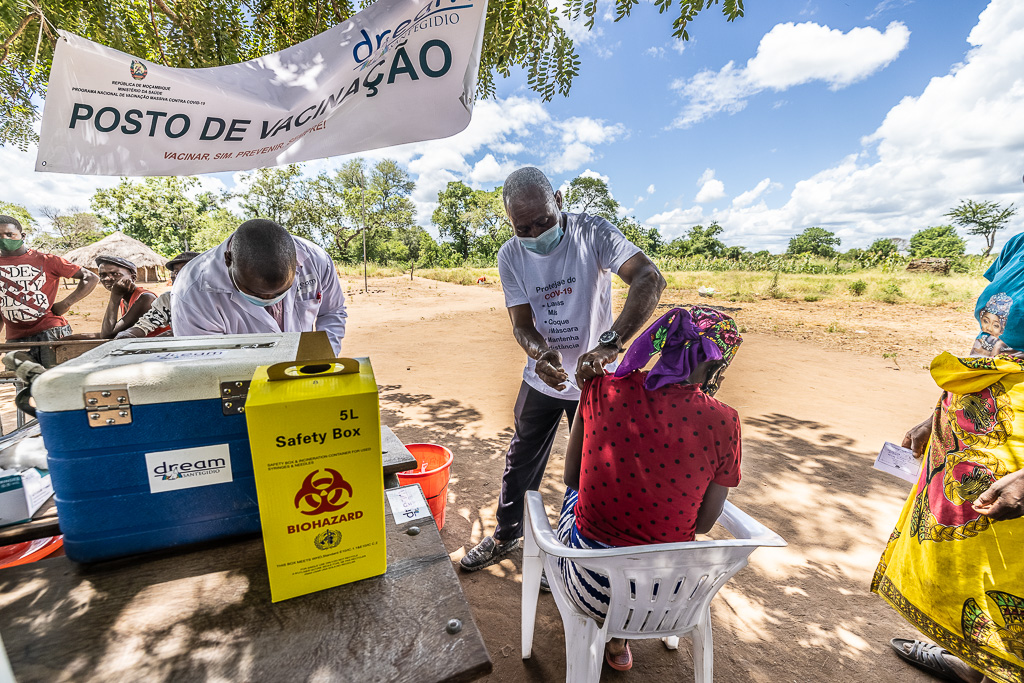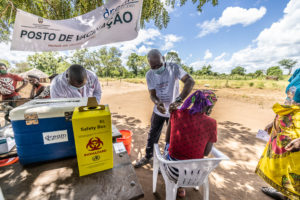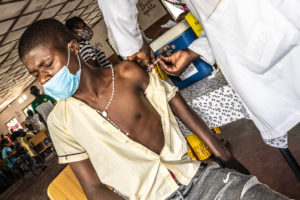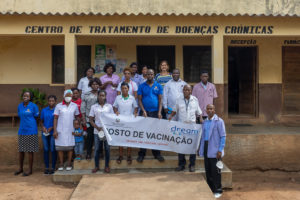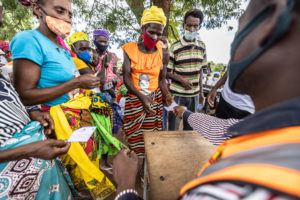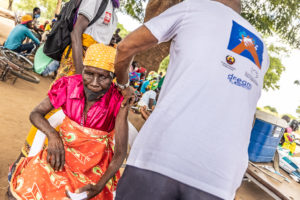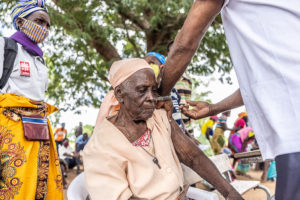Covid in Africa, where do we stand? Data and updates on the epidemic on the continent
WHO had set a goal to fully vaccinate 70 percent of the world’s population by June 2022, but, it is far from the target.
In Africa, only 17 percent of the population has received at least the first dose.
As of the beginning of June, 65.7 percent of the world’s population has been vaccinated, and on the African continent, although six million people are vaccinated on average each week it is necessary to increase to 36 million people vaccinated to reach the 70 percent coverage target.
So, Africa’s access to vaccines is one of the crucial hubs for containing the pandemic but, at the moment, the percentages of the population vaccinated are very low.
In order to facilitate access to health services intended for anti-Covid-19 vaccination, for many months now the DREAM Program, thanks to the support of COOP, has been intervening by vaccinating the population, training health personnel skilled in the use of drugs and vaccine preparation, conducting awareness campaigns, collecting epidemiological and vaccination data, and, managing the logistical and administrative system in the process of distribution and stockpile management.
In addition, the experience of the Community of Sant’Egidio’s DREAM Program in vaccine hubs opened as early as 2021 in Malawi, Central African Republic, Democratic Republic of Congo, and Mozambique, in collaboration with local ministries of health, has highlighted the need to extend vaccination points to more remote locations through the use of mobile clinics to overcome the many logistical difficulties associated with an extremely rural area, make up for the lack of adequate infrastructure, and counteract the mistrust of populations to vaccinate.
But at present, what is the epidemiological situation in Malawi, Mozambique, the Central African Republic, and the Democratic Republic of Congo?
We posed this question to our local health staff.
In Malawi, only 8.3% of the population has been vaccinated with two doses, while 10.7% have received only one dose.
The country is, in addition, experiencing two additional health emergencies related to the return of polio and cholera.
In response to the epidemics, Malawian institutions have implemented two more new vaccine campaigns designed to combat cholera and Polio type 1.
Mozambique is the second country where the joint effort between the Community of Sant’Egidio and Coop has focused.
The country is on track to reach the target of 70 percent of its population fully vaccinated.
To date, 68.2 percent of the population is fully vaccinated, compared to 71 percent who are vaccinated with one dose. Despite this, a state of public health emergency is in effect in Mozambique, and some restrictions persist, such as the presentation of a certificate attesting to the completion of the anti-COVID vaccination cycle for those entering the country, mandatory masking in enclosed places, and mandatory home quarantine only for positives.
In Central African Republic, recent months have seen a slowdown in the national vaccination campaign that began on March 20, 2021, and a decrease in people inclined to vaccinate. This has resulted in the closure of some vaccination centers throughout the country, and as of today, 21.6 percent of the total population is vaccinated with two doses and 22.6 percent with one dose. These percentages are therefore too far from the WHO’s proposed targets of vaccinating 70 percent of the population. In addition, the country faces the problem of batch supplies, especially those arrived through the COVAX circuit, which expire several months or weeks after arrival in the country.
According to WHO, the Central African Republic has been the country among the least prepared to deal with the pandemic, and is currently carrying out a vaccination campaign with no small amount of difficulty.
The Democratic Republic of Congo continues to face several difficulties in implementing an effective vaccination campaign, showing great lag and fearing the arrival of new waves. The main cause is due to the sociocultural context pervaded by misinformation and mistrust of the vaccine, in addition to the difficulty of not being able to constantly procure vaccine doses.
Because of this, to date, only 1.3 percent of the population is fully vaccinated compared with 2.1 percent who are vaccinated with only one dose.
Nonetheless, the long presence of the DREAM Program in Africa, ensures an important rooting on the ground that becomes essential for the development of these and other health activities.
The uncertainty of the epidemic progression of Covid-19 at the international level, can only still motivate an ongoing, sustained and planned effort over time to ensure that the international effort is not interrupted now that important public health goals are being achieved, especially in Western countries.
In the coming months, with the contribution of Coop, the Community of Sant’ Egidio together with the DREAM Program will be able to continue administering vaccine doses, disseminating correct information and professional training; scheduling further interventions in the areas of the different cities in which it operates.
